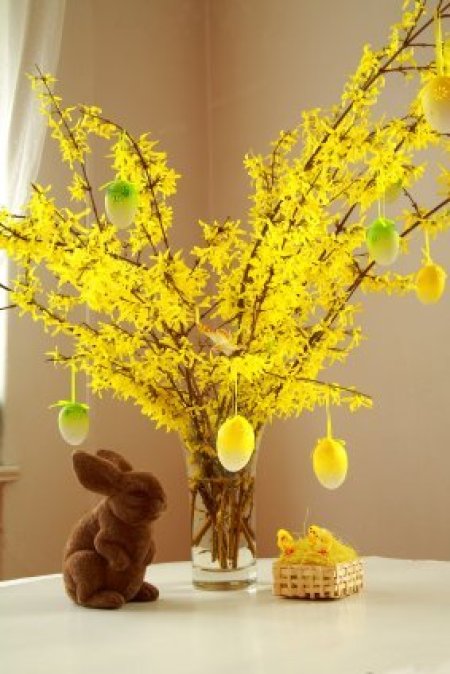Say hello to spring this year by cutting a few branches from flowering trees and coaxing them to bloom for you indoors. Many woody plants can be forced into early flowering early, including forsythia, pussy willow, fruits trees, witch hazel, spirea, quince, and even lilac.
Flowering trees need a dormant period of rest and cold before they will flower-most need at least 8 weeks. The length of dormancy needed varies by species, but cutting branches in early February will work for most. Early bloomers like forsythia and flowering quince can be cut in late January to early February. Later bloomers, like Crab Apple and Honeysuckle should be cut in from mid-March to early April. As with all tree species, the closer you cut them to their normal bloom time, the faster the branches will bloom indoors. Most will take between 2 to 5 weeks to force into bloom. For a succession of color, try cutting various branches over the course of several weeks.Here is a general guide of when branches should be cut:
Late January to early February: Cornelian cherry, forsythia, flowering quince, witch hazel, poplar, willow)
February: red maple, alder, birch, quince, cherry trees, rhododendrons and azaleas (later in the month), pussy willow and wintersweet.
Mid-March to early April: hawthorns, Honeysuckle shrubs, Callery pears, apple trees, crab apple trees, mock orange, oaks, lilacs (late March to early April), redbud, and spirea.
Gather the following supplies:

Add your voice! Click below to comment. ThriftyFun is powered by your wisdom!